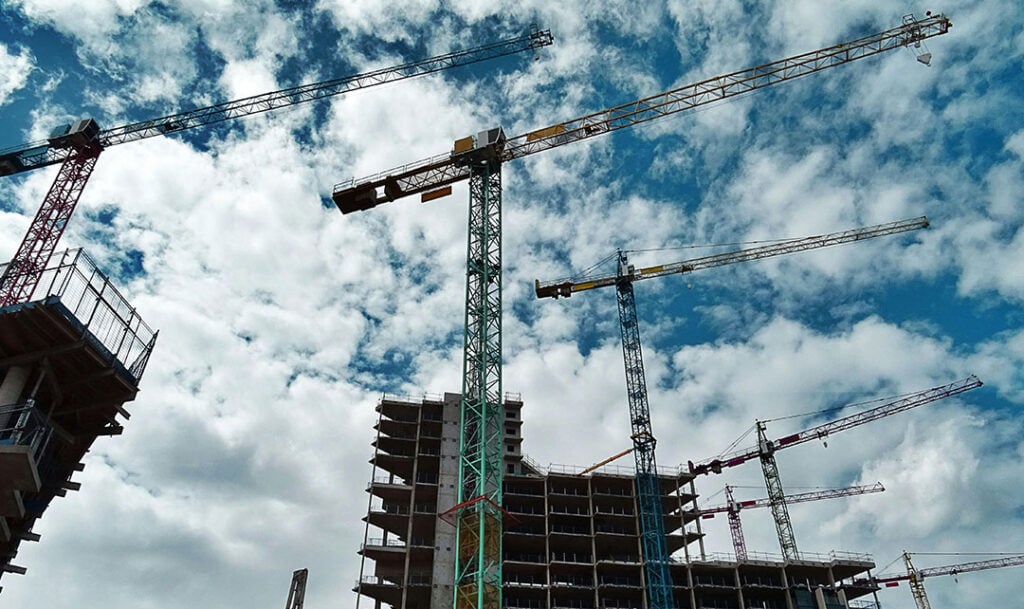

Since 2010, the Global Law Experts annual awards have been celebrating excellence, innovation and performance across the legal communities from around the world.
posted 3 weeks ago
The off-plan segment makes up the bulk of Dubai’s property sales, with most new homes sold before construction is complete. Buyers are drawn by flexible payment terms and the chance to secure units that can grow in value once finished, and many investors have built strong returns this way. Yet with so much capital tied up in projects that can take years to deliver, investors want to know where they stand if a handover drags. This article looks at that question from a legal angle, focusing on when compensation may be claimed, how contracts and current rules shape the outcome, and what steps buyers can take if deadlines slip.
Large developments bring real opportunity, but also logistics to manage. In 2024, Dubai developers cut median construction delays from 4 months to around 2 months, a marked improvement on the 7-month lags seen in 2022. Yet even a two-month delay can feel long when handovers matter to your plans.
Delays often trace back to cash flow. Developers may wait for construction loans or stagger progress if each phase hasn’t been funded. Midway design changes and shifting approval requirements can also push timelines back, as can shortages in materials or construction labour. While these factors don’t derail every scheme, they explain why handovers sometimes take longer than buyers expect.
The first thing to check is your Sales and Purchase Agreement (SPA). It sets the handover date and often includes a grace window, usually six to twelve months, before you can claim a delay has occurred. The exact wording matters, so read it closely.
Penalty clauses, often labelled as liquidated damages, spell out what you’ll get if the developer delays beyond that grace period. Some SPAs cap the amount or tie payments to particular conditions, so a small change in phrasing can alter your claim’s strength.
This document remains your strongest legal foothold, especially when filing a dispute or claim. It’s the first thing regulators, arbitrators, or courts will refer to.
In 2025, RERA has placed greater scrutiny on SPAs. The 30% retention rule for defaulting buyers was revised, requiring full refunds or a proportionate figure based on construction progress, so your SPA’s compensation terms now sit alongside stronger consumer protections.
The Dubai Land Department and its regulator, RERA, set the rules for how off-plan projects are launched, funded, and handed over. Developers must register schemes, open escrow accounts, and meet staged building milestones before they can draw down buyer payments. If a project stalls, the DLD can freeze the account, appoint a new contractor, or order refunds from what remains.
In June 2024 the DLD fined three developers AED 500,000 each for unlicensed marketing and improper escrow use, a reminder that penalties for breaches are heavy and enforcement active. Escrow reporting has also been tightened since then, with banks required to give regulators more frequent updates on balances. In 2025, Abu Dhabi went further, passing a law that lets developers end SPAs without going to court if buyers default, provided notice is served and mediation attempted.
These measures show how closely the authorities watch both sides of the contract, leaving less room for disputes to drift without action.
The first step in any delay dispute is the contract itself. The SPA sets the handover date, any grace period, and whether penalties apply, so buyers should check those terms closely before taking further action. If the wording gives a clear right to damages or liquidated penalties, the buyer has a stronger footing.
Once a delay becomes evident, the issue is usually raised first with the developer through a formal notice. If that fails to produce agreement, it can be escalated to RERA or the DLD’s legal affairs department, which can investigate and in some cases order remedies. Beyond that, claims may be taken to court or arbitration, depending on the dispute clause in the contract.
Refunds, when awarded, are often partial. For example, a buyer may only recover the proportion of payments not yet tied to completed stages of work, with amounts already spent on construction left out. This means the process can take time and results may fall short of full recovery. Success depends as much on contract wording and clear evidence of loss as it does on regulatory support, so buyers weighing a claim need both patience and legal guidance.
Investors who want to keep their position strong should treat paperwork and tracking as part of the process. Know the details of your SPA, especially the delivery clauses and any penalty wording. Check that the project is registered with the DLD and that payments go into the right escrow account. Many buyers now use the Dubai REST app to monitor both. Keep copies of notices, payment receipts, and correspondence with the developer, as these records can prove crucial if you later make a claim. Buyers usually have a set period, often one to two years from the scheduled handover, to bring a formal claim, so a clear paper trail can make all the difference.
Author


No results available
posted 5 hours ago
posted 7 hours ago
posted 10 hours ago
posted 12 hours ago
posted 12 hours ago
posted 12 hours ago
posted 22 hours ago
No results available
Find the right Legal Expert for your business
Global Law Experts is dedicated to providing exceptional legal services to clients around the world. With a vast network of highly skilled and experienced lawyers, we are committed to delivering innovative and tailored solutions to meet the diverse needs of our clients in various jurisdictions.

Send welcome message